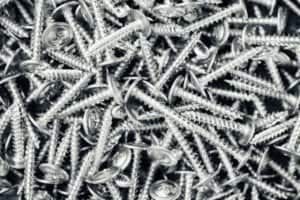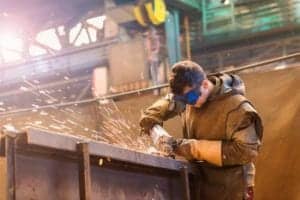302 Stainless Steel
302 Stainless Steel
Stainless Shapes is an experienced 302 Stainless Steel supplier. 302 Stainless is arguably the most common form of stainless on the market. 302 has several similarities to 304 stainless. Except with a higher carbon count than 304, the 302 remains just as versatile a stainless steel out there. Often it is used in strip and wire format with high toughness and comparable corrosion resistance. However, this stainless steel is not hardened by heat treatment. The 302 stainless steel is usually annealed in addition to its easy fabrication and formability.
Features
 Corrosion Resistance – 302 stainless steel provides useful resistance to corrosion on a wide range of moderately oxidizing to moderately reducing environments. The alloys are used widely in equipment and utensils for processing and handling of food, beverages, and dairy products. Heat exchangers, piping, tanks and other process equipment in contact with fresh water also utilize these alloys. Also, a large variety of applications involves household and industrial chemicals. The 18 to 19 percent of chromium which these alloys contain provides resistance to oxidizing environments such as dilute nitric acid. These alloys are also resistant to moderately aggressive organic acids. For example acetic and reducing acids such as phosphoric. The more highly reducing environments such as boiling dilute hydrochloric, and sulfuric acids are shown to be too aggressive for these materials.
Corrosion Resistance – 302 stainless steel provides useful resistance to corrosion on a wide range of moderately oxidizing to moderately reducing environments. The alloys are used widely in equipment and utensils for processing and handling of food, beverages, and dairy products. Heat exchangers, piping, tanks and other process equipment in contact with fresh water also utilize these alloys. Also, a large variety of applications involves household and industrial chemicals. The 18 to 19 percent of chromium which these alloys contain provides resistance to oxidizing environments such as dilute nitric acid. These alloys are also resistant to moderately aggressive organic acids. For example acetic and reducing acids such as phosphoric. The more highly reducing environments such as boiling dilute hydrochloric, and sulfuric acids are shown to be too aggressive for these materials.
 Corrosion Cracking – 302 is the most susceptible of the austenitic stainless steels to stress corrosion cracking in halides. This is because of its relatively low nickel content. Stresses may result from cold deformation of the alloy during forming, or by roller expanding tubes into tube sheets, or by welding operations. This is because it produce stresses from the thermal cycles used. Stress levels may be reduced by annealing or stress relieving heat treatments following deformation, thereby reducing sensitivity to halide stress corrosion cracking.
Corrosion Cracking – 302 is the most susceptible of the austenitic stainless steels to stress corrosion cracking in halides. This is because of its relatively low nickel content. Stresses may result from cold deformation of the alloy during forming, or by roller expanding tubes into tube sheets, or by welding operations. This is because it produce stresses from the thermal cycles used. Stress levels may be reduced by annealing or stress relieving heat treatments following deformation, thereby reducing sensitivity to halide stress corrosion cracking.
Welding – All austenitic stainless steels are considered to be the most weldable of the high-alloy steels. Which is why they can be welded by all fusion and resistance welding processes.
Not Sure What You’re looking For?
Contact us today if you are unsure of what you are looking for. Stainless can be a tricky business to deal with unless you have the right experts to speak with. Our salesman is on the line in Florida and Illinois, and they are ready to answer your calls and get you up and running with your stainless of choice. If you have any questions about our product line, our company, or what kind of stainless will go best with the job you need to be done, give us a call today at (800) 748-9811
